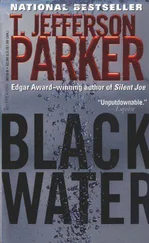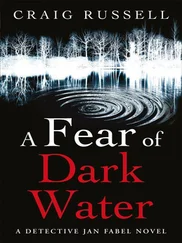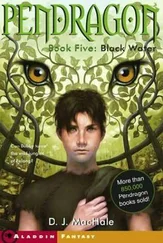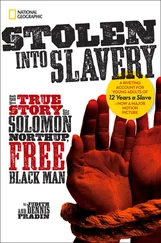To Lisa: for being a rich man’s playground in a poor man’s house
Three days they had gone by foot, walking, sometimes running, always further north along the path. There was no road or trail, nothing but the sky to indicate where they should go—that, and the promise of the North, the liberation of their family, and a freedom they had never known. Keep the sun to the right early, to the left later, and stop when they could not tell the difference: those were their only instructions given them at the last house with a bit of food and a jug of water. It was more than most would have given a family of escaped slaves, even those so close to the end.
It was getting on to dark, but the father would not give rest to the worn or tired, the young or the old. The mountain that stood in defiance of their crossing now lay mostly under them, and he knew that the house they sought was close, always just beyond the next clutch of trees or over the large boulders scattered amongst them. Even in the failing light, his will was forged iron. To his death, he would bring this family to salvation, his children to the freedom of the North, even if it meant without him.
He could hear the feet of his children dragging solemnly through the fallen leaves, the whimpers of unspoken complaints from the youngest of them. His father urged them onward and upward, gently but insistently. He knew that his long-dead mother was watching over them, giving strength through their memory of her. This had been a long dream of hers, a lost hope of his father, and a promise he had made to his children. They would not stop now, not before they were safe in the Heart House atop the mountain.
Trappers still worked the mountain this late in the season, and deer were about their rutting. Hunters plagued them like flies, flies with no remorse at killing the African man or woman, or even child for that matter. His family would be just a sport to them, one more diabolically enjoyable than the white tails haunting this wood. There would be no rest for them until they were safe inside, in the cellar of the Heart House, huddled close in their exhaustion. He longed to see the lantern, the hitching post alight with hope, the indication that here lives a family of white persons willing to help, to aid their escape, and see them off safely.
From somewhere, hounds took to their baying, distant but threatening, drawing the wicked men to them. The fear of his family became a smothering mist around him, his heart pounding against the harder parts of his chest. Even with the sweat dripping from his sun-baked brow, he felt a chill race through him, loosening his gut and weakening his legs. He knew they were hours away, these yelping hounds, but they rarely let up and would eventually bring those they sought.
“Hurry on now. William, you lay hands on them younguns and keep ’um close.”
“I got ’um, Pa,” the boy said, such a good, brave boy. He was near being a man, but not near enough, not for this night.
“Keep ’um movin’, and don’t let up. Get ’um to the top, quick now.”
The boy trudged past him, dragging two younger but mostly silent children. His wife came after, trying to nurse the baby without slowing. She was a tough woman, one he was glad to have, even if he had not had the choice of it. Then his father, old before his time but not without his own gumption, pulled himself up the mountainside using the saplings spread about.
The patriarch, the one responsible for their flight and their safety followed, certain the hounds would not reach them for many hours, hopeful they would abandon their attempts in the dark of night, and wary to his very core.
After the sun had set and many hours of listening to the hounds, each howling cry he would have sworn blood was closer than the last, the ground finally leveled off. It pitched itself forward in a lazy fashion but still completely given over to the forest around them. For the first time in days, he felt hope. Atop this hill sat the Heart estate, friend of the slaves escaping the South, and solitary in its mountaintop post.
It worried him the dogs had come to the foot of the mountain. The last safe house had warned them not to take the path most traveled. The Hearts would be glad to take them in, or so they said, but not the normal stop north for those of his predicament. They must have been wrong or perhaps betrayed by someone in the small village. It did not matter now, for he could just make out light ahead.
It was the soft yellow light of a burning flame, the promised lantern he was certain, and his feet found a lighter pace, his family moving likewise. They were close to their rest, their safety, and the warm meal and kind hospitality of the Heart family.
The forest finally yawned into a field; spat them out and into the open where before them stood the sprawling estate and the small carving of a black man holding a lantern near the foot of the front walk. It was to be their home for the next few days, and then off to Philadelphia where they would continue their journey into Canada.
The house was mostly dark, something he had not expected. It was a large house, larger than the plantation he and his family had worked, but it was frightful in its cold darkness. The front door glowed warmly, the porch lit with two lanterns, but it did not much matter to the man; he would have gone to it had it been dark.
He led his family around the side of the house, skirting the tree line until they could make for the front door while covering as little open ground as possible. There he stopped them all in the trees and brush. He could not understand why the house was so unsettling, so ominous to him, when within was the escape he so desperately sought for his family.
The hound’s voices came over the side of the mountain to rush through the trees and spark a new bolt of terror in his heart. He started them toward the door; perhaps rushing them, keeping his eyes more behind than in front. Those wicked dogs had gotten too close now, and they had to make good their escape. The family reached the porch quickly, and the man knocked as politely as his building fear would allow.
A large man, on a bit on in years but dressed richly, answered the door. “Ah, company! How splendid! Come, all and a one, come and have sup with me!” He hustled them in with all their stink and dirt of days on the run. “I bet you are perfectly starved. Rachel!”
“Thank you kindly, sir. The hounds are but a bit behind us.”
“Worry not on them now. You are safe, and besides, they are my hounds!” the large man said warmly.
“Your hounds, sir?”
“Why, yes, of course. I knew you were coming, you see, but you were late. I sent my sons out looking for you.”
A rotund woman came from the kitchen wrapped mostly in an apron, flour lightening her hair on one side. “What do we have here, husband? Oh, how many?”
“Looks to be six and they are worn through. Some meat if we still have any.”
“Yes, we have some. Does the babe need swaddling as well?”
“That would be right kind of you, ma’am.” The man’s wife smiled at her, her teeth a stark white against the dirt covering her face.
“Take them down to the safe rooms, won’t you? I’ll be right along with the swaddling, some bath water, and shortly after with the meals.”
The man’s daughter began to sob lightly, sob for the tiredness etched into her frail body, for the kindness of white strangers, for the safety she found herself enjoying. William lifted her up and held her close, still looking fearful as though he may have to bolt.
“This way. I have some nice beds for you, and a bath soon enough,” Mr. Heart said as he hoisted a lantern and started for a door behind the grand stairway gracing the entry. He vanished through, and the family followed quietly. “This house was built atop an old prison—used to hold British soldiers and traitors and the like, but now it gives us many hiding places. It is a bit dark and usually damp, but long forgotten, I assure you.”
Читать дальше












